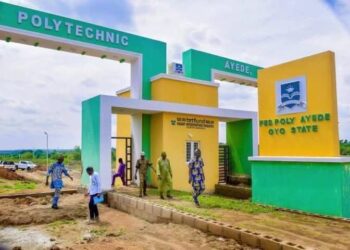By Femi Emmanuel
As the build-up to Nigeria’s 2027 general elections intensifies, the political atmosphere is gradually heating up with renewed calls for the formation of coalitions among political parties. Some stakeholders and political leaders are already exploring alliances they believe could challenge the ruling administration and reshape the country’s democratic narrative.

However, while the idea of a multi-party coalition might appear strategic and constitutional, analysts argue that it is not, in itself, a viable solution to Nigeria’s stagnant and underperforming economy. The harsh realities of everyday life for millions of Nigerians underscore the fact that the nation’s problems go beyond political mergers.
The Constitution Permits It, But What Next?
Section 40 of the 1999 Constitution of the Federal Republic of Nigeria guarantees every citizen the right to freedom of association, including the freedom to belong to political parties or form political coalitions. Indeed, political alliances are not alien to Nigeria’s democratic experience. Yet, it is one thing to form a coalition, and another to ensure that such an alliance is driven by national interest, rather than ego-driven motivations or a mere desire for political relevance.
Recent developments suggest that some of these emerging coalitions are being conceived not out of genuine concern for the nation’s economic recovery, but rather as reactions to political exclusion or perceived marginalization by the current administration.
Beyond Alliances: Where Is the Policy Blueprint?
A coalition without a clear ideological compass or a robust economic recovery plan is no different from a ship without a rudder. For any political coalition to make meaningful impact, it must transcend sentiments, selfish ambitions, and opportunistic calculations.
What Nigerians need—what they deserve—are political parties and leaders who present credible manifestos that speak to the real issues confronting the nation: inflation, unemployment, insecurity, decaying infrastructure, and policy inconsistency. Political manifestos should not merely state problems but must clearly outline strategic, measurable, and practical solutions to address them.
By 2027, voters must demand more than political slogans. They must scrutinize each coalition’s governance framework—its proposed reforms, economic roadmap, and how it intends to navigate Nigeria out of its current economic quagmire.
Citizens’ Needs Must Come First
It is important that every aspiring presidential, gubernatorial, and legislative candidate understands that the needs of the citizens must take precedence over personal ambitions. The essence of democracy lies in service to the people, not in using public office as a tool for self-enrichment.
Political parties must place utmost importance on the people’s welfare by clearly identifying the challenges that have long impeded Nigeria’s development—and presenting credible pathways to tackle them. Only then can we hope to break free from the cycle of underdevelopment and begin to realize the true dividends of democracy.
Good Governance Over Political Power Play
The ultimate aim of any political engagement should be to guarantee good governance. Coalitions or new political alignments should not be vehicles for power grabs, but platforms for national rebirth. If good governance becomes the core focus, then any form of alliance—whether between old or emerging parties—must operate transparently, with integrity and accountability at its foundation.
Transparency in political manifestos, leadership track records, and campaign financing will signal a coalition’s readiness to govern responsibly.
Voter Sensitization and Responsibility Ahead of 2027
Equally important is the role of the electorate. Section 14, Subsection 2(c) of the Nigerian Constitution affirms the right of every citizen to vote and be voted for. But this right must be exercised with seriousness and patriotic diligence. The success of the 2027 general elections, and the future of Nigeria’s democracy, hinge heavily on the political consciousness of the electorate.
Voters must go beyond sentiment and party loyalty. They must demand competence, integrity, and proven track records. Political awareness campaigns, civic education, and grassroots sensitization will be critical in preparing voters to exercise their franchise wisely and responsibly.
Conclusion
Nigeria’s journey towards economic transformation will not be fast-tracked by hurried coalitions or cosmetic alliances. What the nation requires is a deep, intentional shift in political culture—one that prioritizes the people, emphasizes policy over personality, and places national development above political ego.
As 2027 approaches, both political actors and citizens have a duty to chart a new course. The burden of progress lies not just in the hands of those who seek power, but also in the hands of those who bestow it.
You can get every of our news as soon as they drop on WhatsApp ...To get all news updates, Join our WhatsApp Group (Click Here)












